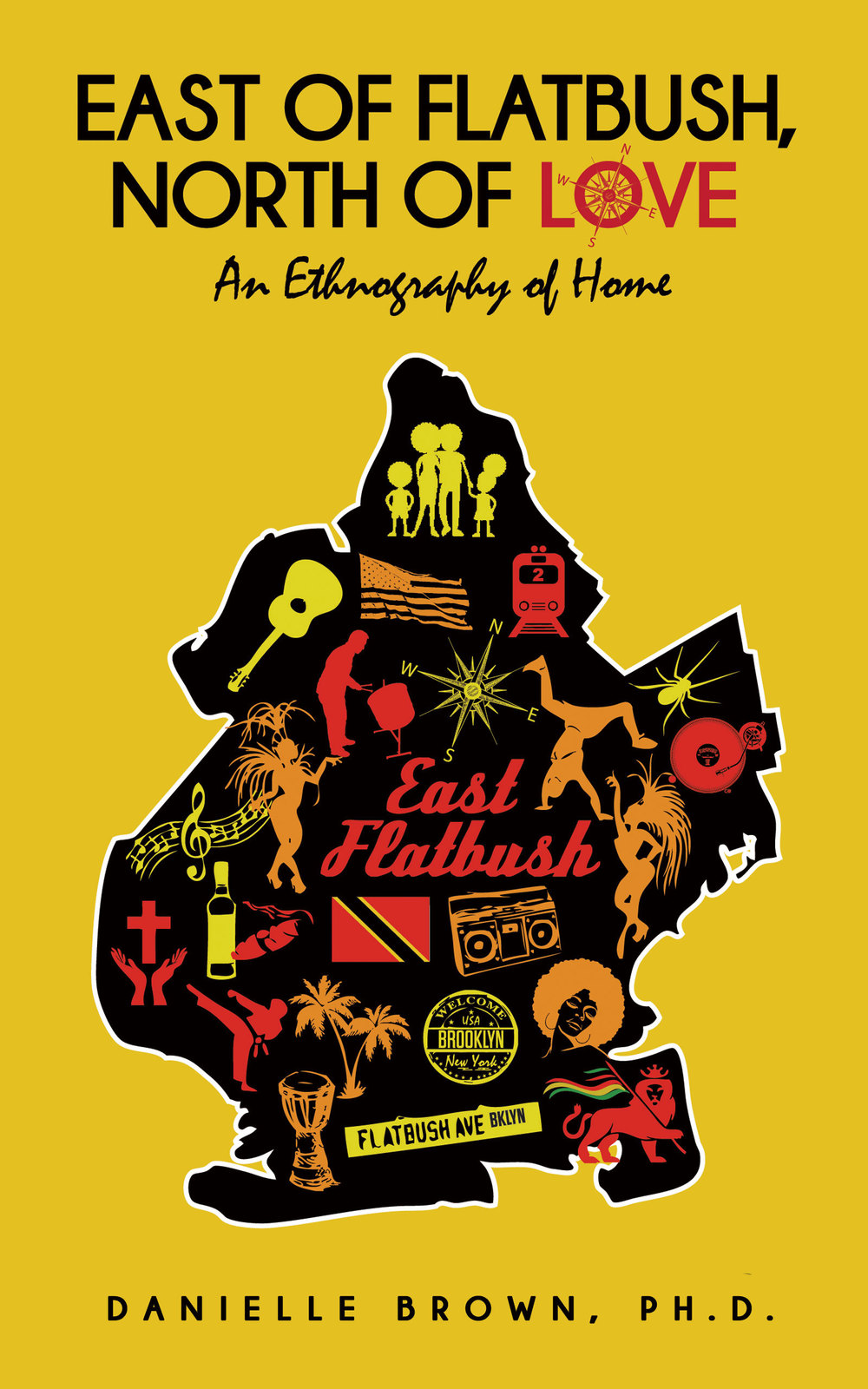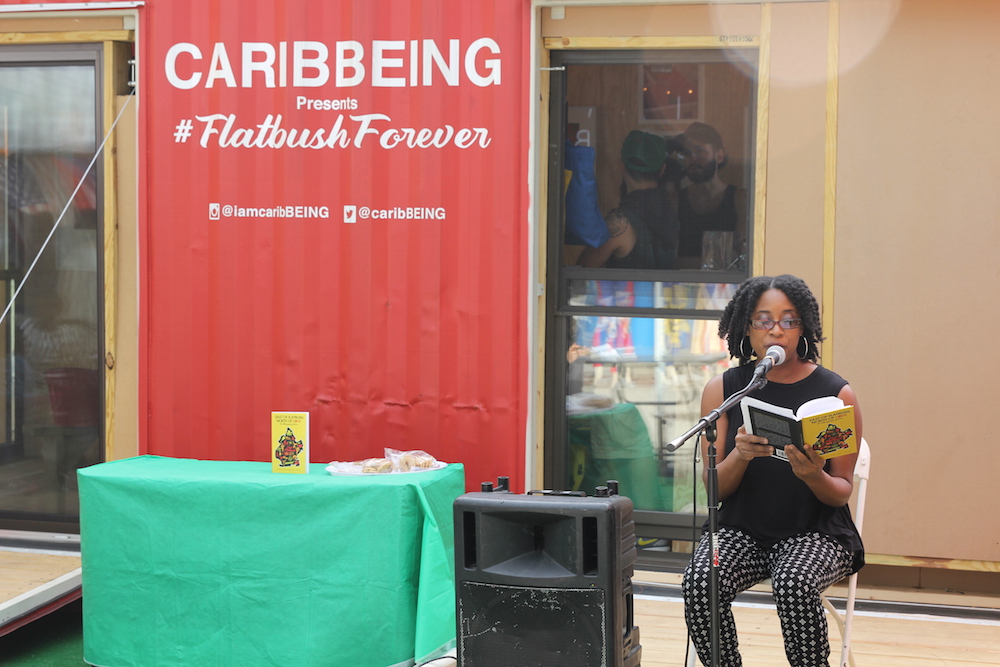|
Getting your Trinity Audio player ready...
|
Reading Time 3 mins
MUSIC SCHOLAR’S NEW BOOK HAS A SOUNDTRACK, READS LIKE A NOVEL, AND CLEVERLY TEACHES READERS WHAT THEY NEVER LEARNED IN SCHOOL ABOUT THE LEGACY OF COLONIALISM.

What happens when a Brooklyn-born and bred music scholar of Trinidadian parentage decides to challenge academia and write a book her way? The result is East of Flatbush, North of Love: An Ethnography of Home, a clever and witty portrait of growing up in East Flatbush— a West Indian American neighborhood situated in the middle of Brooklyn—in the decades before gentrification. On Tuesday June 13, 6 p.m., in celebration of Caribbean American Heritage Month, Medgar Evers College, School of Professional and Community Development in collaboration with the Caribbean Awareness Committee, presents a community discussion on this highly acclaimed memoir with a distinguished panel.
Written like a novel, but ripe with historical and ethnographic information, Dr. Danielle Brown—a NYU-trained ethnomusicologist and former Syracuse University professor— presents a story that is accessible to all. Although East Flatbush plays a starring role, the book pays homage to all the West Indian neighborhoods that have made up Central Brooklyn since the 1960s.
The author uses a wide variety of songs that form part of her cultural upbringing—from calypso to reggae to hip hop—as an educational tool to teach history and to illuminate how the legacy of colonialism and imperialism continues to impact people of color today.
About the book Roger Toussaint, former president of the Transport Workers Union, Local 100 and a member of the Caribbean Awareness Committee, notes, “As those obsessed with ruining America embrace and celebrate dystopia, it’s a pleasure to welcome Dr. Brown’s work as a subversive anthem that implicitly challenges the hallucinatory patter of our time. By recapturing the true spirit of that contested space she hoists aloft the banner of resistance against the galloping ‘social and economic invasion’.”
Additional praise for the book comes from Dr. Lawrence Waldron, City College, CUNY, author of Gypsy in the Moonlight and Handbook of Ceramic Animal Symbols in the Ancient Lesser Antilles: “Written from the viewpoint of a Brooklyn native, this is a contemplative and amusing first-person reflection on community and identity in the West Indian-American enclave of East Flatbush before the devastating gentrifications of the past decade and a half. Neither fiction nor straight biography, the evocatively written East of Flatbush, North of Love comes with tandem subjective and objective views on life in East Flatbush, and the rigorous supporting research that makes it An Ethnography of Home, as the author calls it in her subtitle. As the reader, you are well supplied with hard facts, historical dates, definitions, a running glossary of Trinidadian and other Caribbean idioms, and bibliographic (not to mention discographic) sources, all while you marvel at Brooklyn’s Caribbean cosmopolitanism, hum the tunes to all those transcribed songs, swallow hard through a delicious recipe or a bitter tragedy, thrill to a ghost story, wipe a tear at the loss of community, or laugh at a childhood adventure.”
And Toussaint, who will be moderating the discussion, adds, “Underlying this beguiling and deceptively simple work is a profound repudiation of eurocentrism and its practice of otherizing and objectifying people… Indeed, [this memoir] is a must read for our community and anyone interested in saving neighborhoods and uplifting our youth as it demonstrates how popular culture can be used as the engine for authentic self-education, activism, and change and renewal.”
This sonic trip–with Dr. Brown reading and singing her experience of life growing up as a West Indian-American in Brooklyn–on June 13, 6 p.m. @ Medgar Evers College’s Edison O. Jackson Auditorium, 1638 Bedford Avenue, Brooklyn, NY, is free and open to the public. For information contact: Caribbean Awareness Committee at 718-532-6347.
East of Flatbush, North of Love can be purchased through the author’s website: http://www.mypeopletellstories.com/
